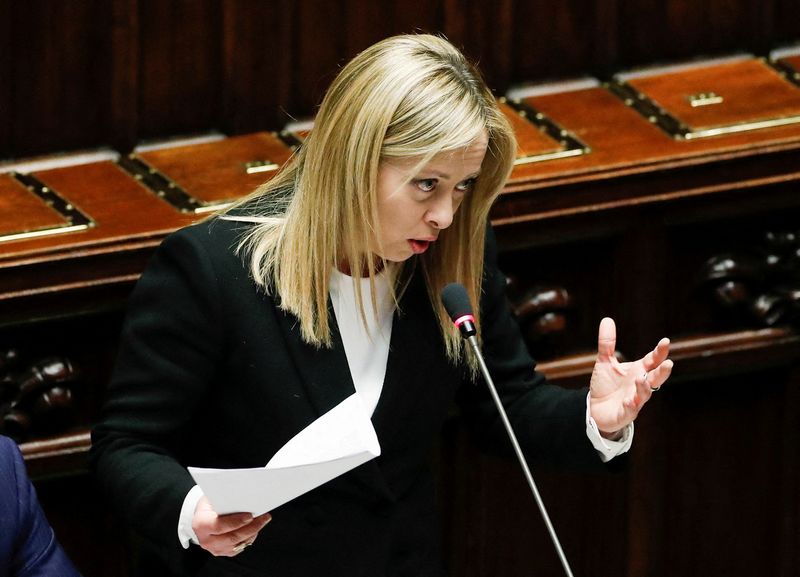
© Reuters. FILE PHOTO: Italy’s Prime Minister Giorgia Meloni attends a question time at the lower house of parliament in Rome, Italy March 15, 2023. REUTERS/Remo Casilli
ROME (Reuters) – Italian Prime Minister Giorgia Meloni’s party has presented a bill in parliament to separate retail and investment banks – a move that, it approved, would force a radical overhaul of the country’s banking sector.
The proposal by the Brothers of Italy (FdI) party comes in the wake of the collapse of U.S. tech lender Silicon Valley Bank (SVB) and the emergency takeover of Credit Suisse by banking rival UBS, which raised fears of systemic stress that could lead to more bank failures.
The bill would de-facto reintroduce 1930s-era legislation scrapped in the 1990s by deregulation reforms that some left- and right-wing politicians blame for contributing to recent financial crises.
Allowing retail banks to engage in “speculative trading” is “dramatically negative for the real economy and undermines the most elementary principles of safeguard for the social and ethical foundation of the economy,” the FdI bill states.
The draft law, seen by Reuters on Wednesday, would give banks 12 months to reorganise their operations and choose between commercial and financial investment activities.
The proposal, which was quietly introduced to the lower house of parliament on March 17, is sponsored by the head of FdI in the lower Chamber of Deputies, Tommaso Foti, and fourteen party colleagues, including former Economy Minister Giulio Tremonti.
Foti did not immediately respond to a request for comment.
FdI promoted a near-identical bill in the last parliamentary term, when the party was in opposition and with Meloni as the bill’s chief sponsor, but it did not go past committee stage and never reached the floor of the house for approval.
In the United States, calls for similar banking reforms, with the reintroduction of the 1933 Glass-Steagall Act, have come from left-wingers within the Democratic Party, such as Senator Elizabeth Warren.





